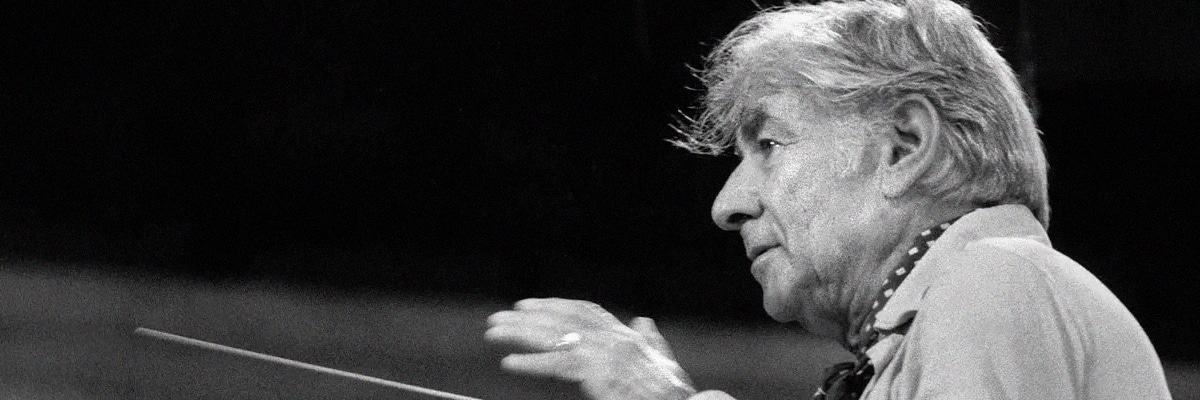When, on August 15, the teaser trailer for the movie Maestro starring and directed by Bradley Cooper (known to the general public for both comedic films such as The Hangover and dramas such as American Sniper) was released, some of the reactions were not what was hoped for: on the film, which focuses on the life of American Jewish conductor Leonard Bernstein and will be screened on September 2 at the Venice Film Festival, some critics attacked Cooper for using a prosthetic nose that would invoke the anti-Semitic stereotype of the hook-nosed Jew.
The context
The attacks on him are part of a larger context, whereby in recent years there has been a trend in Anglo-Saxon countries to have characters of certain ethnicities or sexual orientations played and voiced only by people similar to them, to avoid charges of "cultural appropriation." Suffice it to say that in 2022, speaking to the New York Times about his role as a homosexual lawyer with AIDS in the 1993 film Philadelphia, Tom Hanks recounted, "Could a straight man do what I did in Philadelphia now? No, and rightly so. The whole point of Philadelphia was don’t be afraid. One of the reasons people weren’t afraid of that movie is that I was playing a gay man. We’re beyond that now, and I don’t think people would accept the inauthenticity of a straight guy playing a gay guy.”
Similar episodes have also happened with Italians: when Super Mario Bros animation movie was released in theaters, there were those who questioned the choice of having the famous video game plumber voiced by actor Chris Pratt, "guilty" of not having the right Italian accent for the part (and this despite the fact that in any case at least three of the voice actors who play Mario and Luigi's family were of Italian descent).
The accusations
In Bradley Cooper's case, criticism came, for example, from British actress Tracy-Ann Oberman, who likened his makeup to "black face," when white actors in old films painted themselves to look black, and wished that a Jewish actor would play Bernstein instead. In the same vein, Daniel Fienberg, TV critic for The Hollywood Reporter magazine, said the prosthetic nose would be "problematic."
The son of Ukrainian Jewish immigrants, Bernstein (1918-1990) is considered one of the most important conductors of the 20th century: he was director for the New York Philharmonic and conductor of the Israel Philharmonic Orchestra. He also enjoyed some success in Italy in his day, to the point of becoming honorary conductor of the Orchestra of Saint Cecily Accademia Nazionale in Rome.
Previously, there had been other similar cases: in 2022, some pointed fingers at the film Golda, a biopic on the life of Israeli premier Golda Meir that will be released soon, because the actress who plays her, Helen Mirren, is not Jewish; interviewed by Variety magazine, actress Maureen Lipman said that in the role Mirren will be great. She is a sharp actress, sexy and smart. [...] But in my opinion, and it's just an opinion, if a character's race, creed or gender defines her portrayal, then the right ethnicity should be a priority." Fortunately, the film's director Guy Nattiv defended the decision to cast Mirren, saying she came into the part "with incredible talent, intelligence, depth and emotion, doing justice to the richness and complexity of this incredible woman."
More recently, in the run-up to the release of the Oppenheimer film about the nuclear physicist who created the A-bomb, an editorial had appeared in the London-based magazine The Jewish Chronicle criticizing the choice to have a non-Jewish actor, Irish actor Cillian Murphy, play a Jewish character.
The defense
Fortunatamente, proprio nel mondo ebraico ci sono stati anche coloro che, al contrario, hanno preso le difese di Cooper: a cominciare dai figli di Bernstein, Jaime, Alexander e Nina, i quali in un comunicato apparso su X/Twitter hanno spiegato:
"Bradley Cooper included the three of us along every step of his amazing journey as he made his film about our father. We were touched to the core to witness the depth of his commitment, his loving embrace of our father's music, and the sheer open-hearted joy he brought to his exploration. It breaks our hearts to see any misrepresentations or misunderstandings of his efforts. It happens to be true that Leonard Bernstein had a nice, big nose. Bradley chose to use makeup to amplify his resemblance, and we're perfectly fine with that. We're also certain that our dad would have been fine with it as well. Any strident complaints around this issue strike us above all as disingenuous attempts to bring a successful person down a notch -- a practice we observed all too often perpetrated on our own father.
The Anti-Defamation League (ADL), one of the most prominent American Jewish organizations dedicated to countering anti-Semitism, also came to Cooper's defense. "Throughout history, Jews have often been portrayed in films and in anti-Semitic propaganda by means of devilish caricatures depicting them with large hooked noses," reads one of their statements. "This film, which is a biopic of the legendary conductor Leonard Bernstein, does not fall into this case."
In Italy, too, there are those who have come to the actor's defense: in an article in La Stampa on August 19, writer and translator from Hebrew Elena Loewenthal said that "the controversy over Bradley Cooper's nose as Leonard Bernstein's interpreter really seems to be a woolly issue, indeed a false issue." She added that "Bradley Cooper, an undeniably gifted actor and a man of undeniable charm as well, has every right to tweak his nose to fit the part without having to call into question disparaging intentions or allusions to alleged somatic traits that are the result of toxic stereotypes."
Giornalista pubblicista, ha scritto per le testate Mosaico, Cultweek and Il Giornale Off. Laureato in Beni culturali (Università degli Studi di Milano) e laureato magistrale in Giornalismo, cultura editoriale e comunicazione multimediale (Università di Parma).









Scrivi un commento